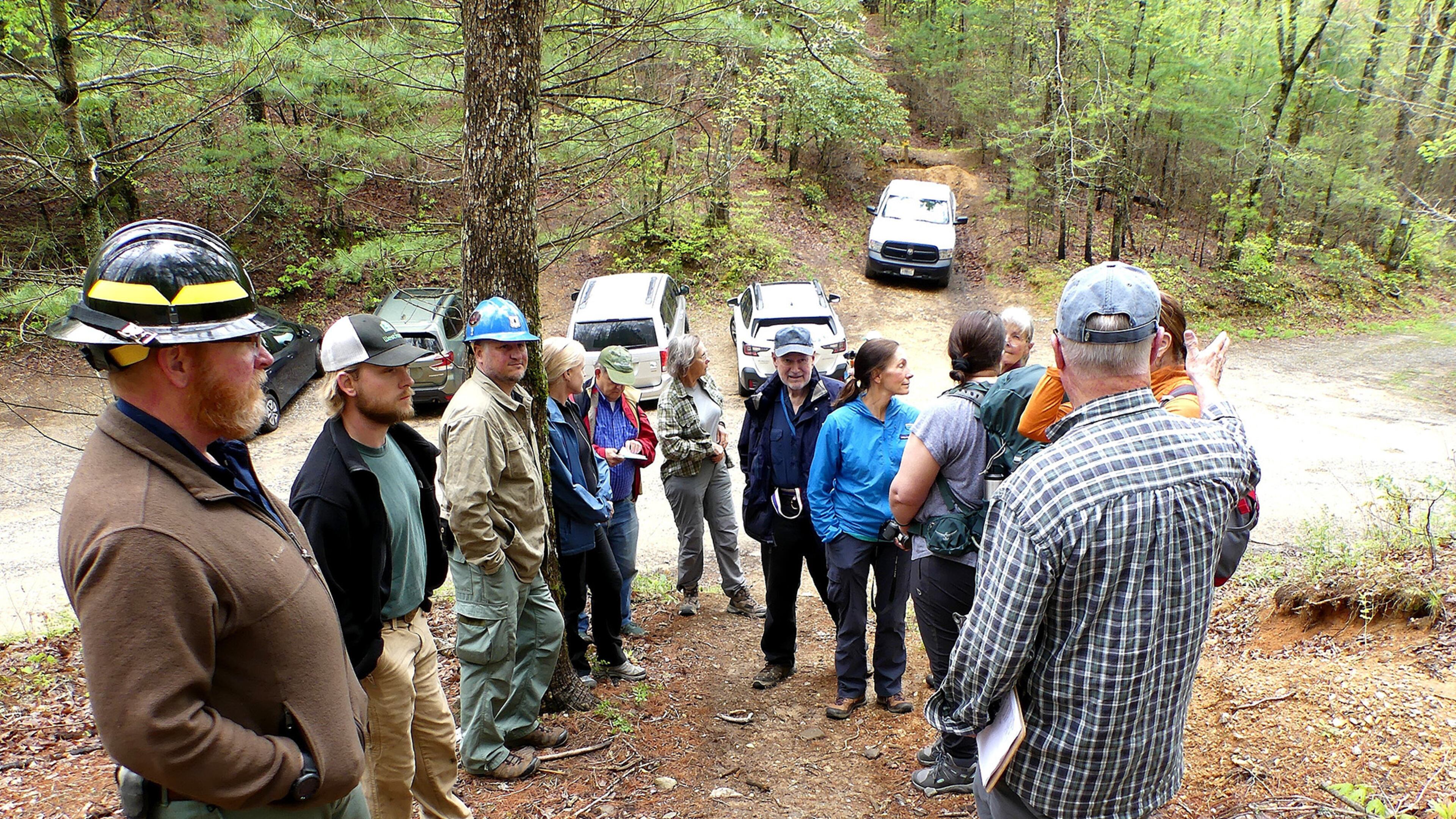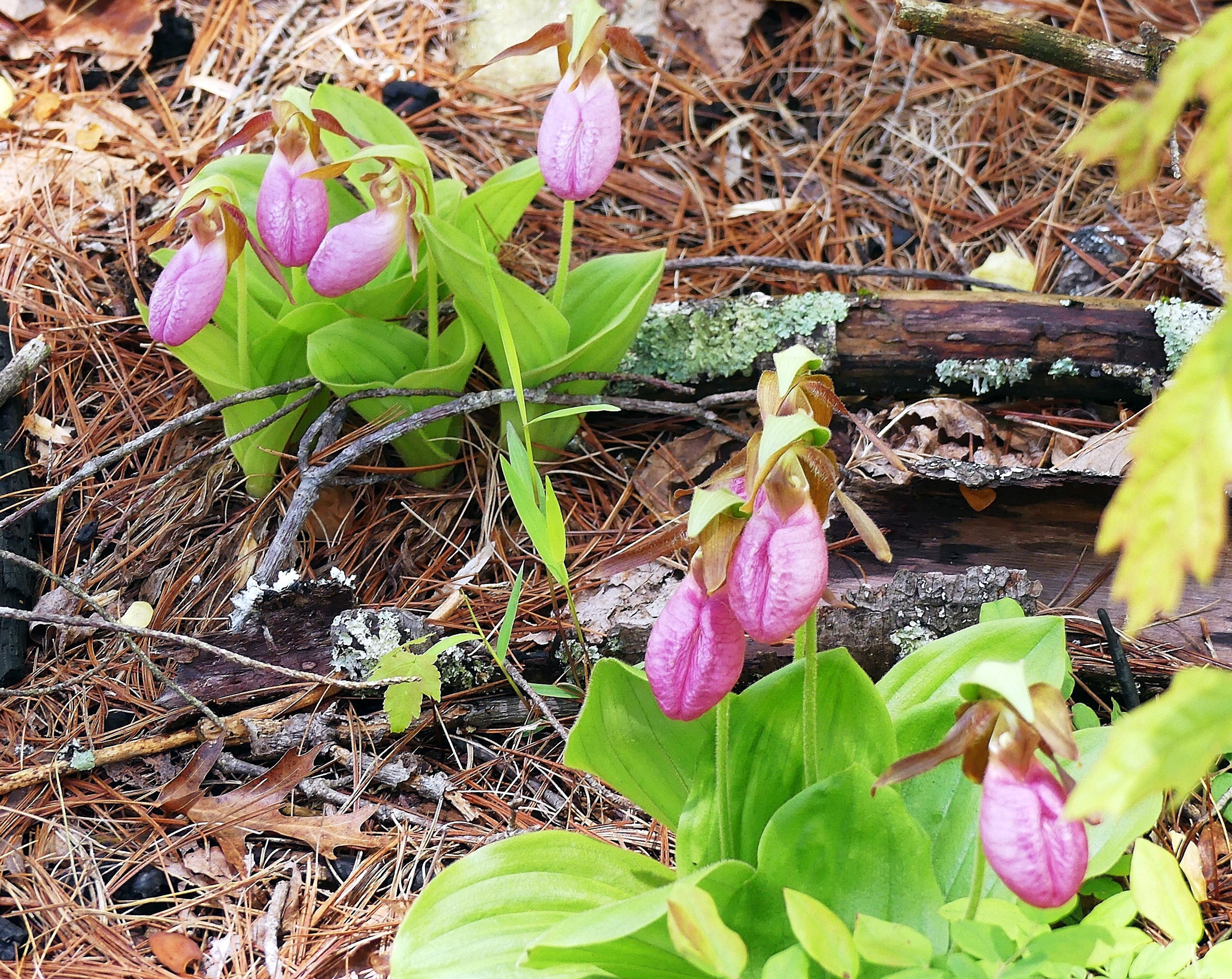Wild Georgia: Pink lady’s slippers killed by fire slowly returning

In late April 2021, Clayton Webster was preparing to lead a group of Georgia Botanical Society members to see the state’s largest and best-known swath of pink lady’s slippers, located near Mulky Gap in the Chattahoochee National Forest in Union County.
In years past, one might see well over a thousand eye-catching lady’s slippers there, all blooming at the same time and creating a pink mist over the forest floor — a breathtaking sight.
But a few days before the 2021 trip, Webster learned that there would be no lady’s slippers to see. The blooming wildflowers, he learned, had been charred, burned by a “prescribed fire” set by the U.S. Forest Service to thin out the woods and reduce the chances of catastrophic wildfires.
Webster canceled the outing. Fearing that the lady’s slippers (a protected species in Georgia) might be gone forever, the botanical society and other groups took the Forest Service to task. “It was just a sad situation; so many special wildflowers gone,” Webster said.
The agency acknowledged that its burn had been ill-timed, and promised to avoid such a mistake in the future. Meanwhile, everyone hoped that the burned-out lady’s slippers could re-sprout and perhaps return to their former glory by this spring, two years after the fire.
Last weekend, Webster and several of us fellow botanical society members met with Forest Service personnel at Mulky Gap to see if that had happened. We were heartened a bit to see as many as 200 lady’s slippers in bloom, “but it will be a long way to go to where they were before 2021,” Webster said.

Even so, we all agreed that controlled, low-intensity fires, also known as “prescribed burns,” are invaluable — when done right — in helping foresters and biologists maintain healthy forests and wildlife diversity. Healthy forests are critical for providing clean water and clean air, and I shudder to think what Atlanta and the rest of Georgia would be like without the great 750,000-acre Chattahoochee National Forest stretching across North Georgia.
IN THE SKY: From David Dundee, Tellus Science Museum astronomer: The Eta Aquarid meteor shower reaches a peak this weekend of 60 meteors per hour in the southeast sky. The moon will be last quarter on Friday (May 12). Venus is in the west just after sunset. Mars is in the southwest at dark. Jupiter and Saturn are low in the east just before dawn.
Charles Seabrook can be reached at charles.seabrook@yahoo.com.

